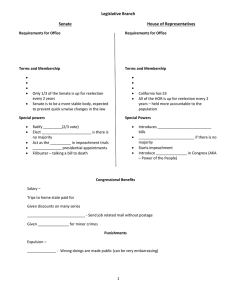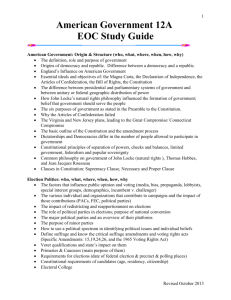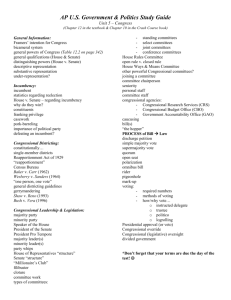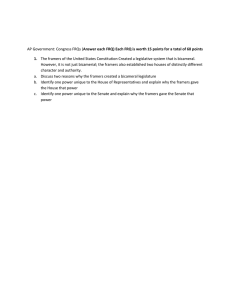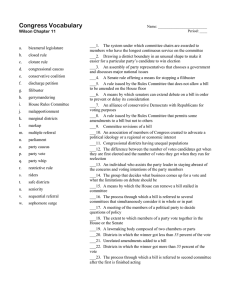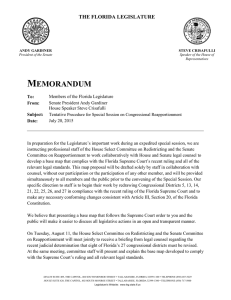5.1 Organization of Congress
advertisement
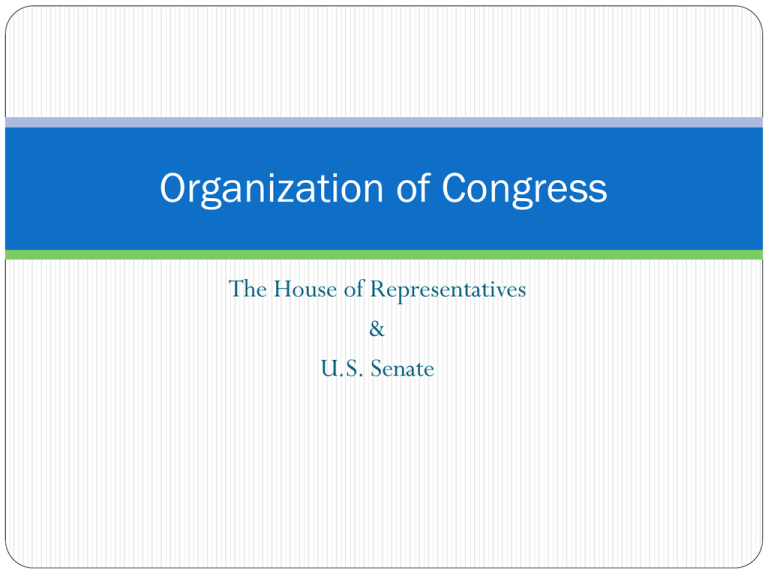
Organization of Congress The House of Representatives & U.S. Senate Congressional Membership Bicameral: Two house legislature. Congressional Sessions Each term begins on January 3 of odd-numbered years and lasts for two years. 111th Congress [2009-2010] 112th Congress [2011-2012] 113th Congress [2013-2014] Each session lasts one year. Have to vote to adjourn. Membership of the House 435 members. Based on each state’s population [APPORTIONMENT] Each state is guaranteed 1 representative. Congressional Apportionment, 2000 http://www.youtube.com/watch?v=RUCnb5_HZc0 http://mapscroll.blogspot.com/2011/01/2010-census- population-and.html Qualifications Must be at least 25 years old. Citizen of the U.S. for at least 7 years. Live in the district they represent. Dan Benishek Term of Office Two-Year Terms. All members (435 of them) must run for reelection! 90% are reelected. What if there is a vacancy? Special election to fill the vacancy. Representation and Reapportionment Census Bureau Census taken every 10 years. Population determines the new number. Congressional Redistricting After reapportionment, the states sets up congressional districts – one for each representative. Redistricting. Some states abused redistricting power. Creating districts of unequal populations Gerrymandering- odd shaped districts “One person, one vote” Each district contains about 650,000 people. Membership in the Senate 2 Senators from every state = 100 Qualifications Age 30+ U.S. citizen for 9 years Legal residents of the state they represent. All voters of each state elect senators AT LARGE, or statewide. DEBBIE STABENOW CARL LEVIN Term of Office Continuity 6 year terms – 1/3 of the senators would run for reelection every 2 years. [Most win reelection] Vacancy?? State legislature may call upon the governor to appoint someone until the next election. OR Governor may also call a special election to fill the seat. Salary and Benefits Senate and House set their own salaries. 27th Amendment (Michigan cast the deciding vote!) Prohibits a sitting Congress from giving itself a pay raise. $133,000 (‘93) $150,000 (‘02) Franking Privilege: free stationary, postage. Privileges….. Free from arrest Cannot be sued for things they say on the floor. May judge each others’ qualifications. May punish its own members for disorderly behavior by majority vote. [Can expel with 2/3 vote] Censure: formal disapproval of a member. E.g. Bill Clinton Scandal.
